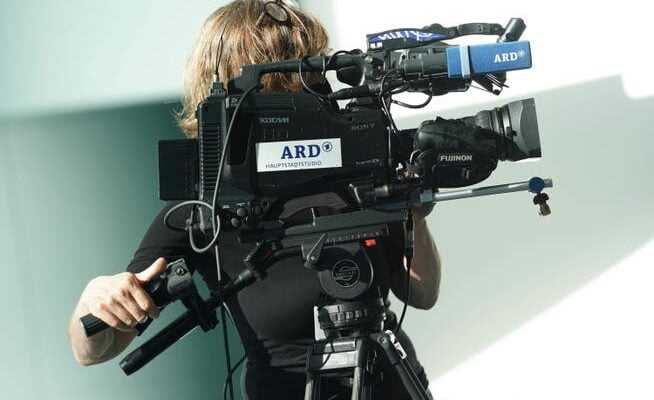The Magdeburg Christian Democrats want to downgrade the ARD television service to a “showcase for the regions”. Although the proposal is unrealistic, it opens up opportunities for a fundamental debate on the abandonment of public service media.
ARD and ZDF are under the protection of the German Federal Constitutional Court.
Far-reaching reform plans for the British BBC became known last weekend. The government under Prime Minister Boris Johnson wants to switch funding from a fee to a subscription model. From 2027 onwards, the broadcaster would then have to assert itself on the free market. Whether these considerations will ever become reality is not only in the stars because of Johnson’s uncertain political fate. The same applies to the newly confirmed expectations of the CDU in Saxony-Anhalt that the ARD public television program could be radically reformed. The “first” in its current form should be over, at least in the long term. The fact that this scenario has now become public may also have something to do with the momentum in Great Britain.
The Price of Broadcasting Freedom
It is not the first time that the Magdeburg CDU parliamentary group is protesting against the media-political consensus. For many years she has accused ARD, ZDF and Co. of excessive costs and insufficient regional and political balance. A protocol note by Prime Minister Reiner Haseloff in the media state treaty and the waiver of a vote in the state parliament prevented the new treaty from coming into force at the end of 2020. This meant that an increase in the monthly broadcasting fee by 86 cents per household was off the table for the time being.
In the summer, however, the Federal Constitutional Court sided with the complaining institutions – at the price of relativizing the free mandate of the deputies. According to the July resolution, it is not enough if a single state parliament votes against an increase in contributions. The “agreement of all countries” is necessary. Otherwise the “freedom of broadcasting” would be violated.
Since then, the ranks of critics of the public law status quo have been fermenting, including in the CDU’s SME and Economic Union. In its own position paper, MIT calls for public broadcasting, «which concentrates on the core of its public task and increases its acceptance among the population». Late on Monday evening, the Saxony-Anhalt CDU parliamentary group then explicitly backed the reform plans of the Minister of Culture and Head of State Chancellery Rainer Robra in a closed meeting. In numerous contributions to the debate, this demanded that broadcasters should make better use of their savings potential and operate more transparently.
A utopian perspective
In October last year, Robra suggested the ZDF should “play at the national level and tie the ARD more than before to the regions”. In line with this, the Magdeburg party friends are now professing that they want to profile “das Erste” as a “showcase for the regions” and ZDF as a nationwide broadcaster. The “Mitteldeutsche Zeitung” from Halle quotes the media policy spokesman for the CDU, Markus Kurz, as saying that “Das Erste” should be abolished as an “independent channel” in the long term. That’s the “long-term goal”.
The ARD would not be history, but there would no longer be a national television program called “Das Erste”, a home for “Tatort”, “Anne Will” and “Rote Rosen”. In the light of the Karlsruhe decision, this perspective is utopian. If an increase in contributions can only be stopped by the joint rejection of all 16 federal states, this would apply even more to such a radical structural reform.
Nevertheless, not only in Great Britain but also in Germany there is currently momentum for a fundamental debate on the limits of broadcasting financed by the general public through a compulsory contribution. A survey by the opinion research institute Forsa published in mid-January revealed a five percentage point loss of trust in the medium of television within a year.
Is gendering covered by the core mandate?
Kurz is by no means speaking into a vacuum when he complains that minority opinions are often stronger on ARD and ZDF than the opinion of the majority. Not only the supporters of “more and more climate protection”, but also those people “who have to pay for it” should be represented appropriately. Kurz also doesn’t see the increase in gender being covered by the “core mission” of the broadcaster.
At least it can be stated from the point of view of the paying consumer of ZDF and ARD: During the Corona crisis, some talk shows became a tribunal for government critics and some news programs became information and advertising events of the Robert Koch Institute. It is just as vague a hope that such one-sided peaks will disappear if ZDF is left with the stage for nationwide explaining, explaining and teaching.
